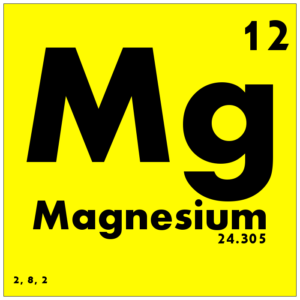by Dr. Carolyn Dean, special to SportsMD.com
The CDC reported in June 2018 that only 23% of US adults are getting enough exercise, yet that’s still a whole lot of people – about 58 million. But, what kind of exercise are they getting and is it helping or hurting?
In my experience, exercisers and athletes are not in control of their workouts. They don’t know how to balance electrolytes in order to avoid lactic acid build up, muscle cramps, heart palpitations, and even heart attack. Let me explain what I mean.

One thing that athletes have in common is sweating – and lots of it. It’s like a badge of honor. Interestingly, our soldiers in the punishing heat of the Middle East often suffer from mineral depletion. They will tell you that when their sweat-soaked shirts dry off, they have to beat them to remove the dried minerals. This is stark evidence that those who heavily perspire can deplete their minerals.
In my over 40 years of experience in the forefront of health care, I found the most important mineral for keeping muscles both strong and relaxed is magnesium. Doctors, coaches, trainers, and athletes don’t know much about magnesium because there isn’t a good blood test that will tell you how much is in your cells. So, the standard magnesium test is ignored – you won’t even find it on a blood electrolyte panel even though it’s the most important mineral in the body.
This is why maintaining healthy magnesium levels is so important. Magnesium is necessary for the proper working of 80% of known metabolic functions. It’s a required co-factor in 1,000 enzyme processes in the body. Magnesium is involved in 6 of the 8 steps of the Krebs cycle to make ATP – the energy molecules of the body. Magnesium is also responsible for temperature regulation; the synthesis of protein; digestion of fats, carbs, and protein; and the production of RNA and DNA. As you can see, magnesium is not only an important electrolyte, but it’s also an important health-promoting nutrient.

Unfortunately, magnesium is depleted in up to 80% of the population because it’s no longer in the food supply. According to the USDA, a hundred years ago we obtained 500mg of magnesium from out diet, now we’re lucky if we get 200mg a day. What we get instead is a lot of calcium from dairy products and calcium-fortified food. This is an issue because calcium and magnesium are antagonists; the more calcium in the body the less magnesium. They have a push-pull relationship – calcium tightens muscles and sparks nerves; magnesium relaxes muscles and nerves. When you have too much calcium in relation to magnesium, your muscles and nerves can go into spasm and cause dozens of symptoms: high blood pressure, muscle spasms, heart palpitations, angina, and heart attack. In fact, in my book The Magnesium Miracle (2017), I’ve listed 65 magnesium deficiency conditions that are routinely misdiagnosed as medical diseases. Those diseases are routinely treated with drugs, instead of magnesium.
While athletes know they have to replace sweat fluid loss, they often reach for so-called electrolyte drinks that are mostly sugar and salt. Then, they wonder why their muscles don’t recover quickly or they experience magnesium deficiency symptoms.
Mineral replacement begins with mineral water. But that’s hard to come by. Most bottled waters are distilled or reverse osmosis, which means there are no minerals left in the water. I recommend using sea salt in your drinking water! How much water? Weight yourself in pounds, divide that number in half and drink that many ounces of water a day. To each liter add ¼ tsp of a good sea salt. On exercise days – add another liter for every hour you work out.
Since your diet is going to be deficient in magnesium, it’s important to take magnesium supplements. Not all forms of magnesium are properly absorbed by the body. A liquid picometer form of stabilized magnesium ions is the best. These ions are smaller in diameter than the body’s cell mineral ion channels so they are directly and completely absorbed into cells. This means the ions bypass a leaky gut; don’t reach the large intestine, and do not have a laxative effect that is common with most other forms of magnesium.
Dr. Carolyn Dean is a medical doctor and naturopath. She’s the author of over 35 books including bestseller The Magnesium Miracle (2017) along with IBS for Dummies, Hormone Balance, and 110 Kindle books. You can pick up a free chapter of The Magnesium Miracle at MagMiracle. In 2011, Dr. Dean launched RnA ReSet and brought her many years of experience into her proprietary, unique formulations that give every individual at any stage of wellness or illness the necessary building blocks for sustained health, vitality and well-being. Dr. Dean’s blog is on Dr.CarolynDean. Free eBooks and her radio show archives are at Dr.CarolynDeanLive.
Cover image: Pixabay/Pexels

